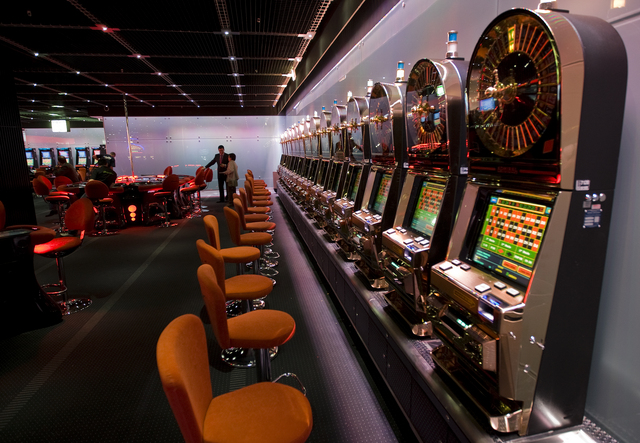
In the world of gambling, where chance and strategy converge, a unique tapestry of beliefs manifests—one that weaves together luck, fate, and the enigmatic nature of casino games. Casinos, bustling with excitement and anticipation, are not just places for placing bets; they are also arenas in which superstitions thrive. Ranging from the novice player to the seasoned gambler, these mysterious practices often shape how individuals approach the games they play, holding the belief that their actions can influence the outcome in ways that go beyond mere probability.
When players gather around roulette wheels, blackjack tables, and slot machines, the atmosphere is thick with stories of lucky charms, rituals, and codified behavior that defy logic yet provide a sense of comfort. It could be the case that it’s wearing a specific outfit, following a particular sequence of bets, or even avoiding certain numbers, the attachment to various superstitions reflects a deep-rooted desire to control the uncontrollable. This article delves into the captivating world of casino game superstitions, examining the beliefs that both entertain and mystify those who dare to play.
Historical Origins of Superstitions
Gambling games have long been entwined with an variety of superstitions that can be traced to early societies. The origins of these ideas can be associated to humanity’s fundamental need to control the uncertain outcomes associated with luck and uncertainty. In primitive civilizations, games of uncertainty were often connected to ritualistic practices. Gamblers would seek favor or request favor from spirits, believing that their actions could affect the odds in their advantage. This foundation laid the groundwork for the myriad of superstitions that proliferated as gambling evolved over ages.
During the medieval period, betting became a common pastime across the continent, and with it, a colorful tapestry of superstitions appeared. Players adopted numerous rituals and charms, believing they could affect the consequences of games. The significance of digits, in particular, emerged to appear in superstitions around card games and dice. The number 7 was often considered favorable, while various numbers carried bad connotations. These beliefs mirrored the societal contexts of the time, changing as they moved through generations and transformed to new gaming environments.
As casinos emerged in the seventeenth century, particularly in the Italian peninsula and the French nation, the atmosphere surrounding gambling became saturated in mystique. The growing openness of casino games allowed for the expansion and growth of superstitions among players. Concepts like fortunate charms, special seating locations, and rituals gained importance, creating a distinct culture within betting houses. As these traditions continued to thrive, they became integral to the character of gambling activities, illustrating how the past and tradition shape the convictions that influence how participants interact with luck. Miso88 – nhà cái trực tuyến uy tín hàng đầu châu á
Widespread Casino Myths
Beliefs surrounding gambling activities are plentiful and diverse, mirroring the dreams and fears of gamblers as they engage in chance-based activities. One of the most common beliefs is that certain numbers bring luck or bad luck. For example, the digit 7 is often seen as a favorable digit, frequently sought after by players looking for a favorable result. Conversely, the digit thirteen is routinely considered cursed, leading many gamblers to avoid it during their gaming sessions.
Another frequent superstition relates to practices that players believe can affect their chances. Whether blowing gently on the dice before a roll, using a specific gesture to place a bet, or even putting on specific items of attire, many individuals feel that these actions can sway luck in their favor. These rituals offer a sense of control in an otherwise unpredictable environment, reinforcing the idea that luck can be created through individual convictions and customs.
Lastly, the environment and vibe of the casino itself adds to myths. Many gamblers suggest that the presence of certain icons, such as four-leaf clovers or lucky coins, can enhance their chances of winning. Additionally, gamblers might hold to the belief that victory streaks can be interrupted by mundane occurrences, such as a person walking past or a accident at the table. The shared environment in a casino can amplify these beliefs, creating a communal culture of myths that goes beyond single experiences.
Impact of Superstitions on Players
Superstitions play a crucial role in the mindset of casino players, often affecting their behavior and choices. A lot of gamblers believe that luck can be influenced through various rituals, such as wearing a lucky charm, choosing particular hues, or steering clear of particular digits. This reliance on superstitions can create a feeling of authority in an environment that is inherently unpredictable. Players often feel more confident and involved when they believe that their actions could sway the outcome of a game in their favor.
The impact of these superstitions extends past singular players, affecting the overall atmosphere inside the casino. For instance, a player who holds the belief in the luck of a particular slot machine might attract a gathering, as others are intrigued by their apparent success. This collective belief can heighten excitement and create a lively environment, leading to an engaging experience even for those who may not necessarily be believers themselves. The buzz around specific games can lead to increased participation and longer playing sessions, supporting the casino’s lively social scene.
In some instances, superstitions can lead to detrimental effects for players. Relying too heavily on rituals can result in bad gambling decisions, as some may ignore basic strategies in favor of baseless beliefs. Additionally, the pressure to perform rituals may heighten anxiety and tension, detracting from the pleasure of the experience. Ultimately, while superstitions can enhance the thrill of playing casino games, they can also lead to foolish choices that overshadow the enjoyment and amusement intended in the casino experience.
